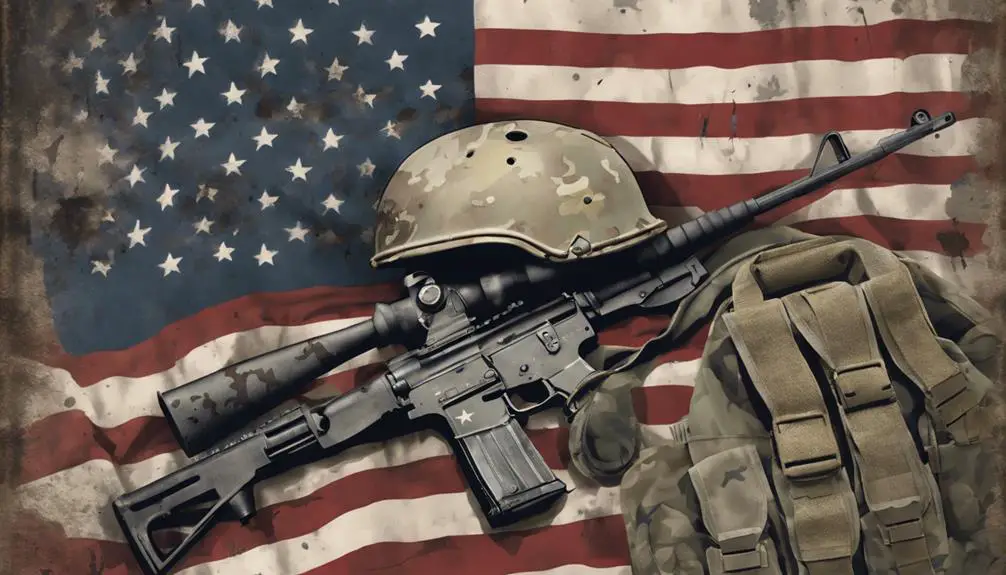You're about to enter the world of military slang, where concise communication and camaraderie reign supreme. Military slang words serve as an essential tool for effective communication, unity, and operational efficiency. From 'Roger That' (acknowledging a message) to 'FUBAR' (a disastrous situation), understanding these phrases is important. As you explore the domain of military slang, you'll discover how it evolves with technology, varies across branches, and requires context-dependent understanding. Get ready to uncover the nuances of military jargon and develop a deeper appreciation for the military culture. There's more to uncover – and it's just a step ahead.
History of Military Slang
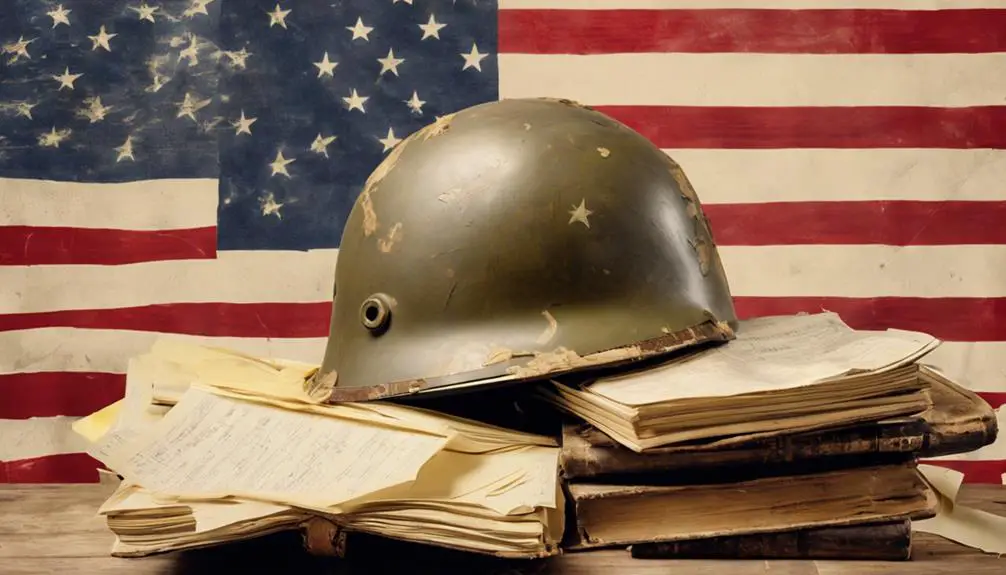
You've likely heard military slang being used in popular culture, but the origins of this unique language date back to the early 17th century, when British soldiers first started using colloquialisms to communicate secretly and quickly on the battlefield. The etymological roots of military slang can be traced back to the British Army's need for coded language during wartime. In the midst of battle, clear communication was essential, and using colloquialisms helped to confuse the enemy while conveying essential information to comrades.
Historical context plays a significant role in understanding the evolution of military slang. During World War I, soldiers used slang to cope with the harsh realities of trench warfare. The use of colloquialisms provided a sense of comfort and familiarity in the face of chaos. As military conflicts continued, slang adapted to new situations, incorporating elements from various cultures and languages.
The language of war became a dynamic, ever-changing entity, shaped by the experiences of soldiers on the front lines. By examining the historical context of military slang, you'll gain a deeper understanding of its significance and relevance in modern times.
Common Slang Phrases Explained
From 'hooah' to 'FUBAR,' military slang is filled with colorful phrases that can be confusing to outsiders, but hold significant meaning for those in the armed forces. As you explore the world of military slang, you'll discover that these phrases have rich origins and complex meanings. To understand them, let's delve into them:
- Hooah: Originating from the World War II-era phrase 'Heave Ho,' this term has evolved to signify enthusiasm, excitement, or confirmation. For example, if someone asks if you're ready for a mission, a loud 'Hooah!' is a resounding 'yes.'
- FUBAR: Short for 'Fouled Up Beyond All Recognition,' this phrase describes a situation that's completely chaotic or disastrous. Imagine a mission gone wrong, and you'll understand why this phrase is often muttered in frustration.
- Oorah: This Marine Corps battle cry is often used to express motivation, excitement, or solidarity. You might hear it during training, before a mission, or when celebrating a victory.
Communication in High-Stress Situations
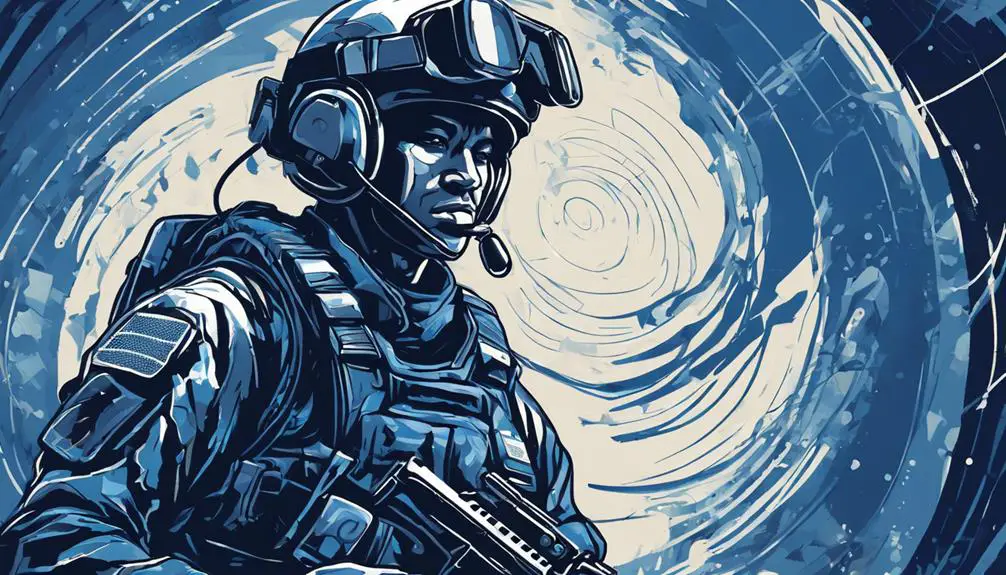
In high-stress situations, effective communication is essential, as it can mean the difference between success and failure, or even life and death. You know that clear communication is key to achieving your objectives, and it's especially critical when you're under pressure.
That's where Crisis Clarity comes in – it's the ability to convey critical information concisely and accurately, even in the most intense situations.
When you're in the midst of a crisis, you can't afford to mince words or beat around the bush. You need to get your point across quickly and efficiently, without sacrificing clarity.
That's why the military has developed the Pressure Protocol, a set of communication guidelines designed to facilitate clear and concise communication under duress. By following this protocol, you can secure that your message gets through, even in the most high-stress situations.
Building Camaraderie With Slang
As you master the Pressure Protocol to convey critical information in high-stress situations, you're likely to encounter a unique language that fosters camaraderie among military personnel: slang. This informal language isn't just an essential tool for building bonds and creating a sense of belonging within the military community.
Slang becomes an integral part of bonding rituals, allowing personnel to connect on a deeper level and share experiences through inside jokes and colloquialisms. This shared language creates a sense of exclusivity, making you feel like you're part of a special group that understands each other like no one else.
Here are three ways slang strengthens camaraderie:
- Creates a sense of belonging: Slang becomes a badge of honor, signifying that you're part of the military family.
- Fosters humor and wit: Inside jokes and witty one-liners become a way to diffuse tension and create laughter in high-pressure situations.
- Establishes a common language: Slang provides a shared vocabulary that transcends rank and branch, creating a sense of unity across the military community.
Slang Across Different Branches
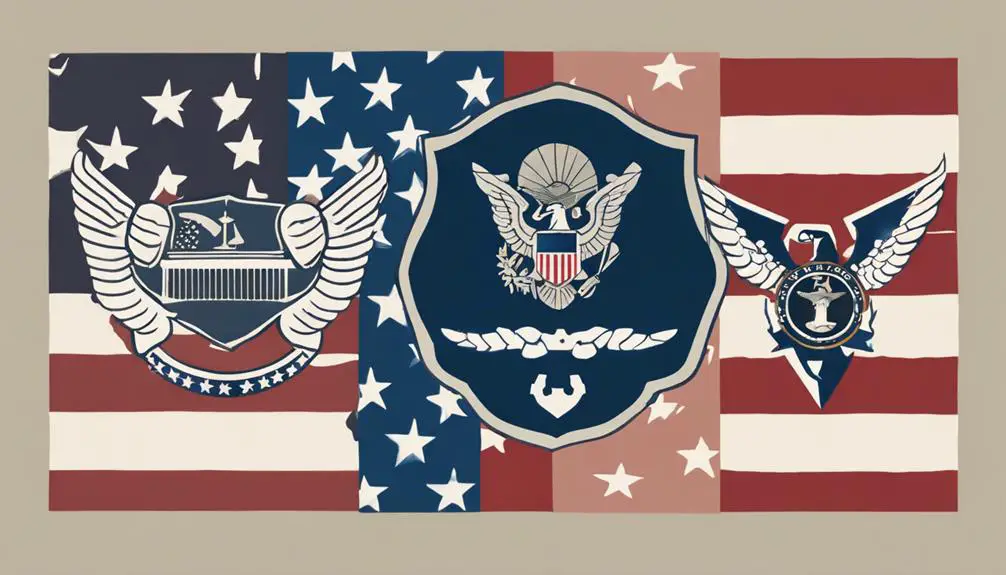
You'll notice that different branches of the military have their unique slang, reflecting their distinct cultures and histories. For instance, the Army has its own set of slang terms, such as 'hooah' (meaning 'yes' or 'okay'), while the Navy uses 'anchors aweigh' to signal the start of an operation. The Air Force, on the other hand, uses 'bunny suit' to refer to the flight suits worn by pilots.
These inter-service dialects often lead to branch rivalries, with each branch claiming its slang is superior.
However, these dialects also serve as a way to reinforce camaraderie within each branch. For example, the Marine Corps uses 'oorah' to express enthusiasm or approval, which is unique to their culture. The Coast Guard, with its rich maritime history, uses nautical terms like 'deck ape' to refer to a sailor on deck.
Understanding these differences in slang is essential for effective communication and collaboration between branches. By recognizing and respecting these inter-service dialects, you can build stronger relationships with your counterparts from other branches, ultimately leading to better teamwork and coordination.
Evolution of Military Slang Words
Military slang words have undergone significant transformations over time, reflecting the dynamic nature of warfare, technological advancements, and shifting cultural norms that influence their development. As you explore the history of military slang, you'll notice that linguistic adaptation has played an essential role in shaping the language. The need to communicate effectively in high-stress environments has driven the creation of new words and phrases.
- Cultural Fusion: Military slang often blends elements from different cultures, reflecting the diverse backgrounds of service members. This fusion of languages and dialects has resulted in unique expressions that are distinct to the military.
- Technological Advancements: The introduction of new technologies has led to the creation of new slang terms. For example, the advent of radio communication gave rise to terms like 'Roger that' and 'copy that.'
- Contextual Evolution: Military slang has evolved to adapt to changing contexts, such as the shift from trench warfare to modern asymmetric warfare. This evolution has led to new terms and phrases that reflect the changing nature of warfare.
As you explore further into the world of military slang, you'll discover how linguistic adaptation, cultural fusion, and technological advancements have shaped the language over time.
Decoding Military Jargon
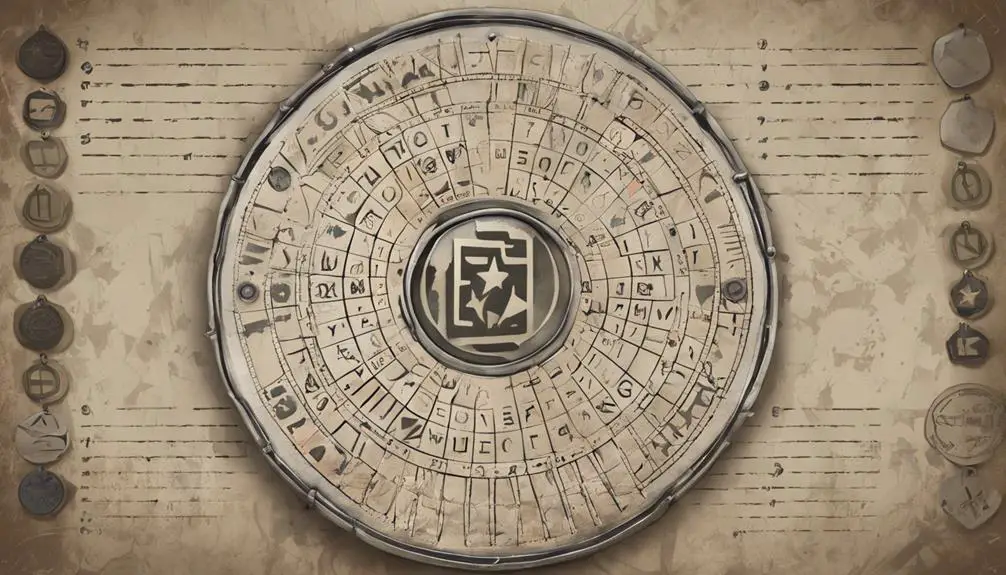
When deciphering military jargon, it's crucial to have a deep understanding of the context, tone, and nuances that underlie the language, enabling you to decode phrases that might otherwise seem cryptic or confusing.
As you navigate the world of military slang, you'll encounter phrases that are rooted in cultural significance, reflecting the history, values, and traditions of the armed forces. To truly grasp these phrases, you need to take into account the cultural context in which they're used.
In today's digital age, digital applications have made it easier to access and learn military slang. Online resources, such as dictionaries and forums, provide a wealth of information on military jargon, allowing you to explore and learn at your own pace.
However, it's crucial to be cautious when relying on digital sources, as some may be inaccurate or outdated. By combining digital applications with a deep understanding of cultural significance, you'll be better equipped to decode military jargon and appreciate the nuances of this unique language.
Frequently Asked Questions
How Do Military Slang Words Affect Mental Health in Combat Zones?
When you're in a combat zone, you're already under immense stress. Add the pressure of being in a high-stress environment, and it's no wonder combat stress can take a toll on your mental health.
However, having a strong sense of mental camaraderie with your fellow soldiers can be a game-changer. It's essential to recognize the signs of combat stress and foster open communication within your unit to mitigate its effects.
Are Military Slang Words Used in International Coalition Operations?
When you're part of an international coalition operation, you'll encounter cultural barriers that can hinder communication. You'll need to navigate operational nuances that vary between countries and forces.
In this complex environment, you'll often rely on standardized terminology to guarantee clarity. While military slang words might be familiar to your comrades, they can confuse or alienate international partners.
It's crucial to adapt your language to the coalition's common tongue, avoiding slang that can obstruct clear communication and jeopardize mission success.
Can Military Slang Be Used to Identify Fake Veterans?
You're probably wondering if you can spot a fake veteran by their lingo. Coincidentally, it's not that essential.
Verifying authenticity requires more than just recognizing military slang. Slang experts can help, but it's important to dig deeper. A fake veteran might use the right terminology, but their stories and behavior will often raise red flags.
You need to look beyond the jargon and scrutinize their claims, checking for inconsistencies and verifying their service records.
Are Military Slang Words Used in Military-Themed Video Games?
You're about to immerse yourself in the world of military-themed video games, where gaming realism is paramount.
To create a sense of virtual immersion, developers often incorporate realistic elements, including military slang. By using authentic terminology, they aim to transport you into the game's universe.
But do they actually use military slang to achieve this?
Do Military Slang Words Vary Across Different Military Ranks?
Picture yourself ascending a hierarchical ladder, where each rung represents a distinct dialect. As you ascend, you'll find that language adapts to the rank.
Yes, you'll discover that military slang words vary across different military ranks. The Officer-enlisted divide is evident in rank-specific jargon. For instance, officers might use more formal terminology, while enlisted personnel employ colloquialisms.
This divide is a reflection of the military's organizational structure, where language is shaped by role and responsibility.
Conclusion
You've explored the world of military slang, where words take on new meanings and phrases become lifelines in high-stress situations.
You've seen how slang builds camaraderie, facilitates communication, and evolves across branches and eras.
Like a well-oiled machine, military slang words work together to convey complex ideas, simplify complexity, and forge unbreakable bonds.
Now, as you decipher military jargon, you're equipped to navigate the unique language of the armed forces, where every word counts.

